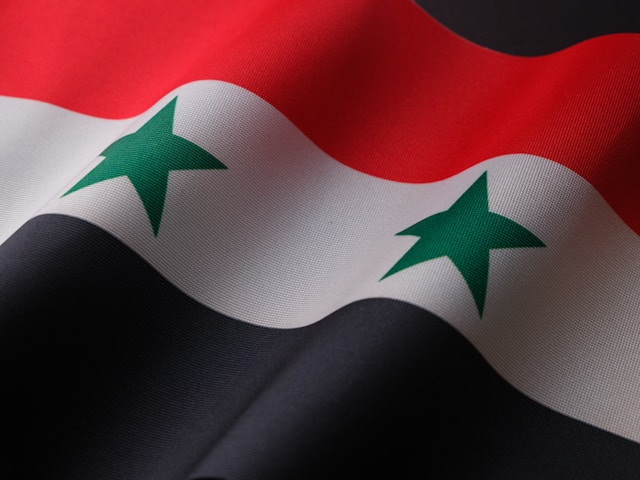In a country already embroiled in civil war and humanitarian crisis, the installation of a new interim leader in Syria has prompted fresh waves of uncertainty. The new interim prime minister’s leadership has been under scrutiny due to emerging concerns over his affiliations and the potential ideological shifts that could influence Syria’s future. Images surfacing of his public appearances have exhibited overtly religious and politically controversial symbols, including the display of a Salafist flag, which has raised alarms both domestically and internationally.
The new leadership comes at a critical juncture for Syria, which remains fragmented as various factions vie for power. While meant to usher in a transitional period towards stability, the interim government’s direction signals potential realignments that could impact both internal governance and external diplomatic relations.
Observers note that the presence of elements associated with groups like Hayat Tahrir al-Sham suggests that radical ideologies may gain traction, potentially perilous for a nation seeking peace and rehabilitation. Fears abound that such affiliations could lead to policies that exacerbate sectarian tensions rather than bridge them.
Embed from Getty ImagesThis backdrop has intensified the dialogue around Syria’s transitional process. Concerns hinge on whether the interim administration can truly represent the diverse demographics within Syria, including moderate factions, ethnic minorities, and secular groups. Moreover, the role of external powers, from regional actors to global players such as Russia and the United States, remains highly influential. Their interactions with Syria’s new leadership will likely shape the country’s geopolitical landscape significantly.
The situation invites parallels with historical shifts where ideological leadership either catalyzed progress or precipitated further regression into conflict. International bodies have iterated the importance of inclusive governance structures and caution against ideologically narrow leadership that alienates broad segments of the populace.
Despite these challenges, some remain cautiously optimistic. They argue that increased international awareness coupled with concerted diplomatic efforts could deter extremist influence and promote negotiation, creation of coalitions, and political inclusivity.
For now, the world watches closely as Syria faces yet another pivotal phase in its tumultuous journey, hoping that this period can lead to genuine reforms and foster unity rather than discord amongst a fractured populace.
Perspectives
Perspective 1: One perspective views the new interim leader as a beacon of necessary change amidst a climate of stagnation and despair. Advocates for this viewpoint see his appointment as an opportunity to break away from protracted conflict and to introduce potentially transformative policies. They emphasize the need for international support to enable a smooth transition toward a more stable and representative form of governance.
Sources:
CNN
NBC NEWS
Perspective 2: Critics are deeply concerned about the ideological leanings of Syria’s new leadership, fearing that associations with extremist groups could lead to policies that further divide the nation. This perspective warns against entrusting leadership to figures associated with radical elements, advocating for vigilant international oversight and strategic interventions to prevent the exacerbation of sectarian conflicts.
Sources:
THE NEW YORK TIMES
BBC NEWS
Perspective 3: A third viewpoint highlights the role international diplomacy must play in guiding Syria through this transitional phase. Analysts suggest that while the interim leadership presents challenges, it also opens diplomatic channels for regional and global actors to foster peace and stability. This perspective underscores dialogue, inclusivity, and adaptive strategy as key diplomatic tools to help navigate the complexities of Syria’s political evolution.
Sources:
AL MONITOR
FOREIGN POLICY
